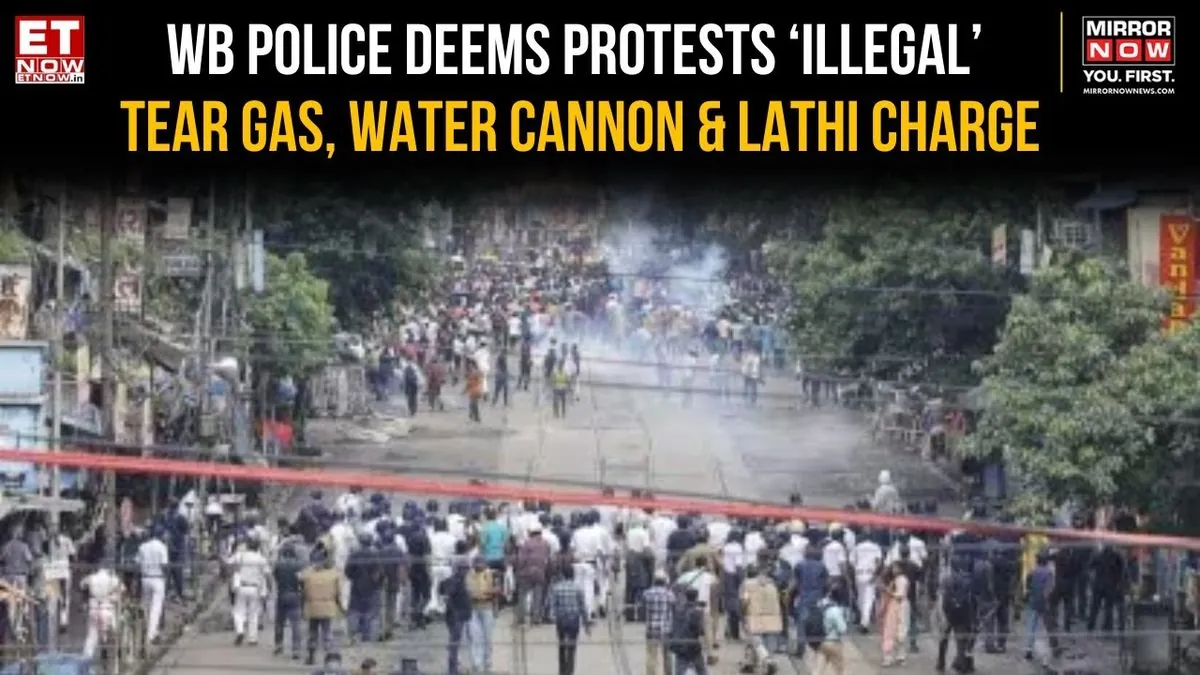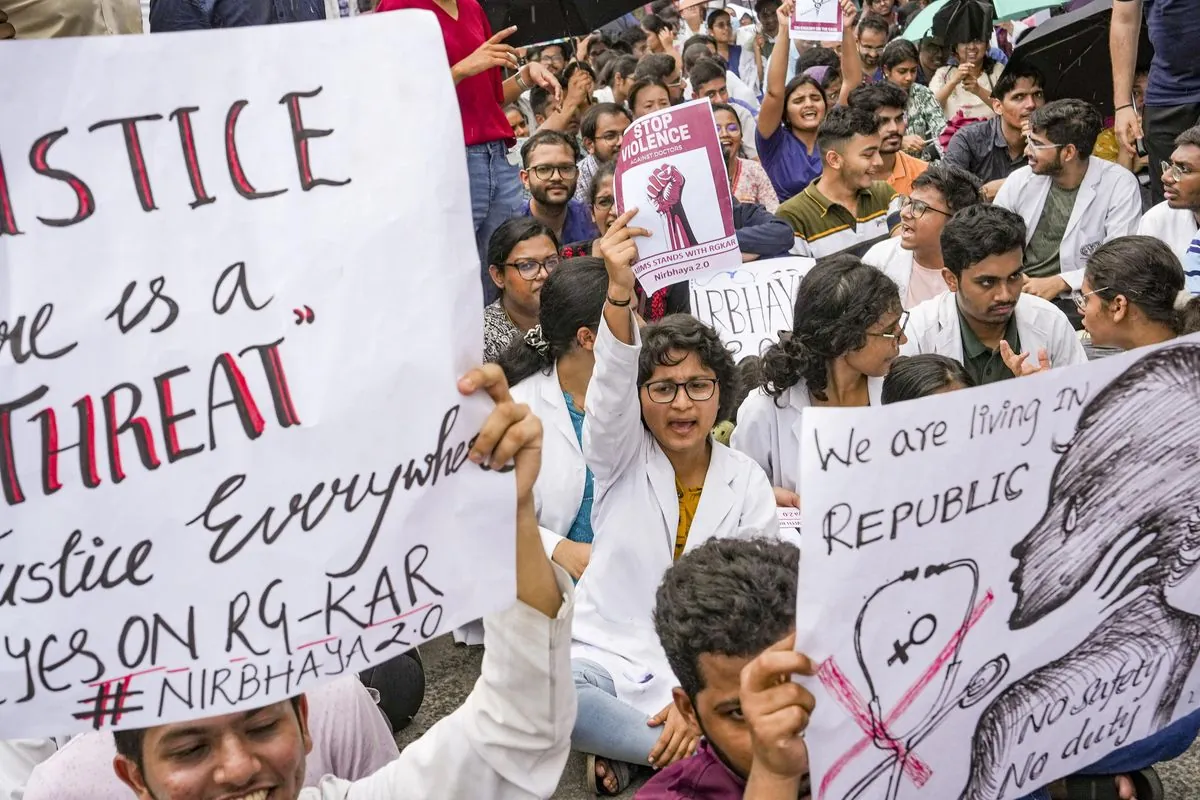Kolkata Erupts in Protests Over Doctor's Murder, Police Use Force
Demonstrations in Kolkata demanding minister's resignation turn violent. Police employ teargas and water cannons as protesters breach barricades, highlighting ongoing concerns about women's safety in India.

In a display of public outrage, hundreds of protesters, primarily university students, took to the streets of Kolkata on August 27, 2024, demanding the resignation of a senior state official following the brutal assault and killing of a medical trainee. The incident, which occurred on August 9, has reignited nationwide discussions on women's safety, reminiscent of the public outcry following the 2012 Delhi gang rape case.
Law enforcement responded to the demonstrations with force, utilizing teargas and water cannons to disperse the crowd. The protesters, who had been declared unauthorized by authorities, managed to breach iron barricades along their route to the West Bengal state secretariat, prompting police to resort to baton charges.
The tragic event has had far-reaching consequences on India's healthcare system. Junior doctors across the country have limited their services to emergency cases, initiating protests to demand justice for the victim and enhanced security measures for women in medical facilities. Despite the Supreme Court's establishment of a hospital safety task force and appeals for medical professionals to resume regular duties, many, particularly in West Bengal, have continued their strike.

The incident has also intensified political tensions in the region. Kunal Ghosh, representing the ruling Trinamool Congress Party, attributed the police crackdown to alleged "lawlessness" instigated by members of Prime Minister Narendra Modi's Bharatiya Janata Party (BJP) and its affiliated groups. Conversely, the BJP has expressed support for the protesting students, with senior state leader Suvendu Adhikari accusing Chief Minister Mamata Banerjee's administration of attempting to downplay the severity of the crime—a claim vehemently denied by the state government.
The protests in Kolkata, India's third-most populous metropolitan area, have necessitated the deployment of over 5,000 police officers in the city and neighboring Howrah. This significant law enforcement presence underscores the scale and intensity of the public reaction to the tragic event.
The R.G. Kar Medical College and Hospital, where the incident occurred, has a long-standing history dating back to 1886. This venerable institution now finds itself at the center of a national debate on women's safety and the security of medical professionals.
India's struggle with sexual violence against women persists despite the implementation of stricter laws following the 2012 Delhi gang rape. The Criminal Law (Amendment) Act of 2013, enacted in response to that incident, aimed to address these issues, yet campaigners argue that women continue to face high levels of sexual violence.
As the nation grapples with this latest tragedy, the incident serves as a stark reminder of the ongoing challenges in ensuring women's safety and the need for continued efforts to address these critical issues in Indian society.
"We demand justice for the victim and immediate action to improve safety measures for women in hospitals. The government must take responsibility and implement concrete changes to prevent such horrific incidents in the future."


































